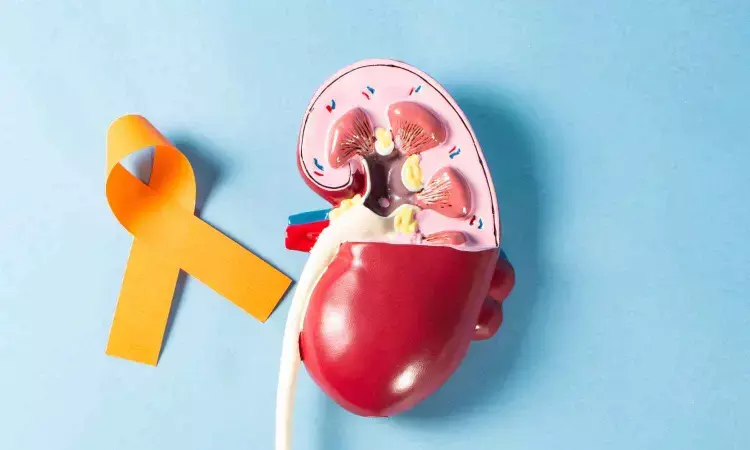- Home
- Medical news & Guidelines
- Anesthesiology
- Cardiology and CTVS
- Critical Care
- Dentistry
- Dermatology
- Diabetes and Endocrinology
- ENT
- Gastroenterology
- Medicine
- Nephrology
- Neurology
- Obstretics-Gynaecology
- Oncology
- Ophthalmology
- Orthopaedics
- Pediatrics-Neonatology
- Psychiatry
- Pulmonology
- Radiology
- Surgery
- Urology
- Laboratory Medicine
- Diet
- Nursing
- Paramedical
- Physiotherapy
- Health news
- Fact Check
- Bone Health Fact Check
- Brain Health Fact Check
- Cancer Related Fact Check
- Child Care Fact Check
- Dental and oral health fact check
- Diabetes and metabolic health fact check
- Diet and Nutrition Fact Check
- Eye and ENT Care Fact Check
- Fitness fact check
- Gut health fact check
- Heart health fact check
- Kidney health fact check
- Medical education fact check
- Men's health fact check
- Respiratory fact check
- Skin and hair care fact check
- Vaccine and Immunization fact check
- Women's health fact check
- AYUSH
- State News
- Andaman and Nicobar Islands
- Andhra Pradesh
- Arunachal Pradesh
- Assam
- Bihar
- Chandigarh
- Chattisgarh
- Dadra and Nagar Haveli
- Daman and Diu
- Delhi
- Goa
- Gujarat
- Haryana
- Himachal Pradesh
- Jammu & Kashmir
- Jharkhand
- Karnataka
- Kerala
- Ladakh
- Lakshadweep
- Madhya Pradesh
- Maharashtra
- Manipur
- Meghalaya
- Mizoram
- Nagaland
- Odisha
- Puducherry
- Punjab
- Rajasthan
- Sikkim
- Tamil Nadu
- Telangana
- Tripura
- Uttar Pradesh
- Uttrakhand
- West Bengal
- Medical Education
- Industry
Bevacizumab and erlotinib combo effective in papillary renal-cell carcinoma patients: NEJM

A new study published in The New England Journal of Medicine showed that bevacizumab and erlotinib together demonstrated efficacy in individuals with spontaneous or Hereditary leiomyomatosis and renal-cell cancer (HLRCC)-associated papillary renal-cell carcinoma.
Germline mutations in fumarate hydratase (FH) cause the genetic disease known as hereditary leiomyomatosis and renal cell cancer syndrome. Skin leiomyomas, early-onset numerous uterine leiomyomas, and an aggressive form of type 2 papillary renal cell carcinoma (RCC) are the hallmarks of this autosomal dominant disorder. The WHO has modified its 2016 genitourinary cancer classification, including RCC in HLRCC as a new entity, HLRCC-associated RCC, even though RCC developing in HLRCC syndrome had previously been classified as type 2 papillary RCC.
The patients with severe HLRCC-associated papillary renal-cell carcinoma have no known therapeutic treatment, and the majority of them pass away as their condition worsens. Thus, this research evaluated the effectiveness of using bevacizumab and erlotinib in combination to treat HLRCC.
This research assessed the effectiveness of erlotinib (150 mg once daily) and bevacizumab (10 mg per kilogram of body weight every two weeks) in patients with advanced HLRCC-associated or spontaneous papillary renal-cell carcinoma. Overall response was the main outcome, while progression-free and overall survival were the secondary outcomes.
40 patients with spontaneous papillary renal-cell carcinoma and 40 patients with HLRCC-associated papillary renal-cell carcinoma were included in the study. Nearly, 31 patients (72%; 95% CI, 57 to 83) with HLRCC-associated papillary renal-cell carcinoma experienced a confirmed response; the median overall survival was 44.6 months (95% CI, 32.7 to could not be estimated) and the median progression-free survival was 21.1 months (95% CI, 15.6 to 26.6).
With a median progression-free survival of 8.9 months (95% CI, 5.5 to 18.3) and a median overall survival of 18.2 months (95% CI, 12.6 to 29.3), 14 patients (35%; 95% CI, 22 to 51) with sporadic papillary renal-cell carcinoma experienced a verified response.
The most frequent side effects of therapy were proteinuria (78%), diarrhea (89%), and acneiform rash (93%). And the most frequent adverse events of grade 3 or above that were associated to therapy were proteinuria (17%) and hypertension (34%). Overall, a combination of bevacizumab and erlotinib demonstrated anticancer efficacy in patients with HLRCC-associated or spontaneous papillary renal-cell carcinoma.
Reference:
Srinivasan, R., Gurram, S., Singer, E. A., Sidana, A., Al Harthy, M., Ball, M. W., Friend, J. C., Mac, L., Purcell, E., Vocke, C. D., Ricketts, C. J., Kong, H. H., Cowen, E. W., Malayeri, A. A., Shih, J. H., Merino, M. J., & Linehan, W. M. (2025). Bevacizumab and erlotinib in hereditary and sporadic papillary kidney cancer. The New England Journal of Medicine, 392(23), 2346–2356. https://doi.org/10.1056/NEJMoa2200900
Neuroscience Masters graduate
Jacinthlyn Sylvia, a Neuroscience Master's graduate from Chennai has worked extensively in deciphering the neurobiology of cognition and motor control in aging. She also has spread-out exposure to Neurosurgery from her Bachelor’s. She is currently involved in active Neuro-Oncology research. She is an upcoming neuroscientist with a fiery passion for writing. Her news cover at Medical Dialogues feature recent discoveries and updates from the healthcare and biomedical research fields. She can be reached at editorial@medicaldialogues.in
Dr Kamal Kant Kohli-MBBS, DTCD- a chest specialist with more than 30 years of practice and a flair for writing clinical articles, Dr Kamal Kant Kohli joined Medical Dialogues as a Chief Editor of Medical News. Besides writing articles, as an editor, he proofreads and verifies all the medical content published on Medical Dialogues including those coming from journals, studies,medical conferences,guidelines etc. Email: drkohli@medicaldialogues.in. Contact no. 011-43720751


